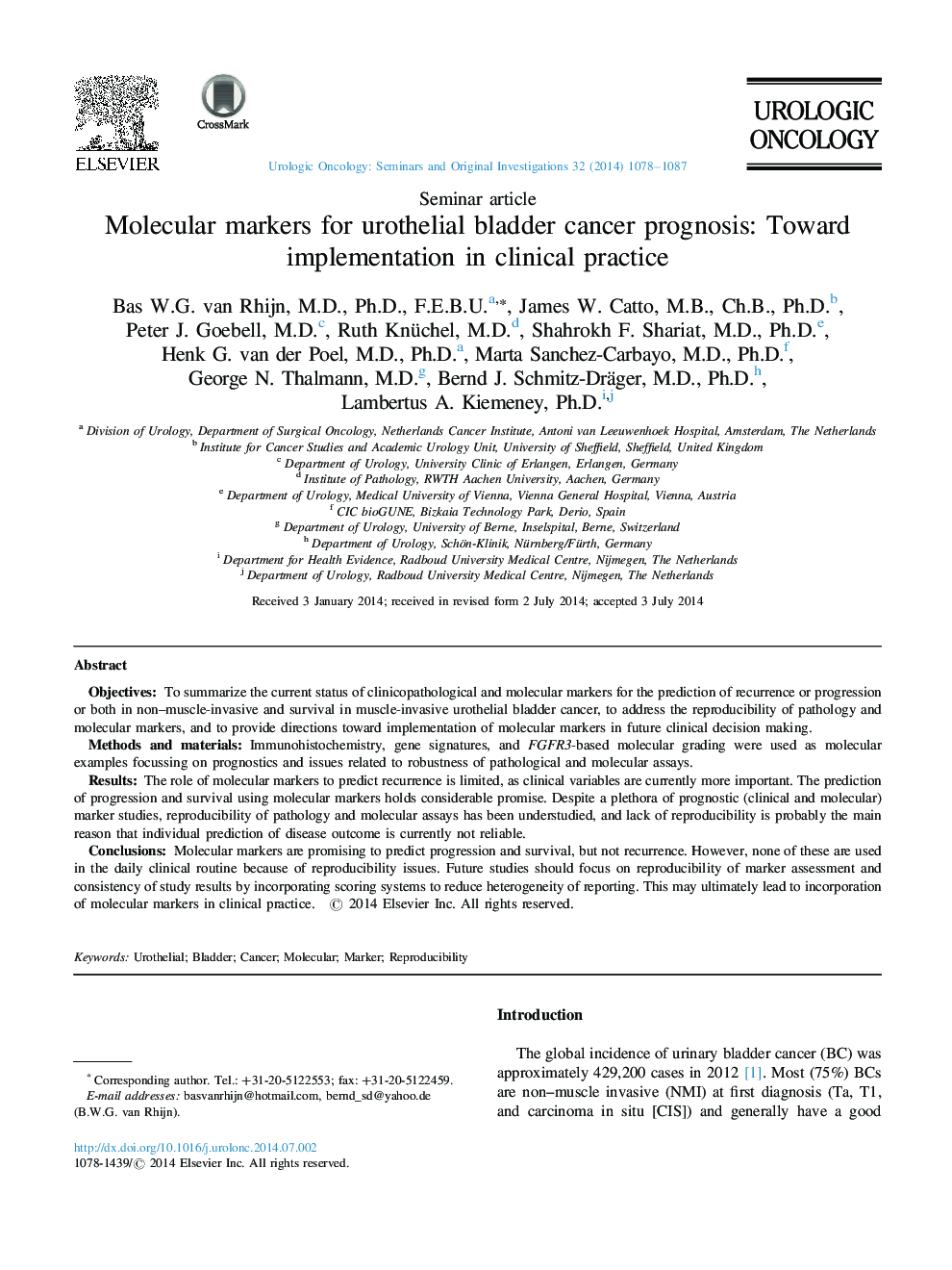| Article ID | Journal | Published Year | Pages | File Type |
|---|---|---|---|---|
| 3999827 | Urologic Oncology: Seminars and Original Investigations | 2014 | 10 Pages |
ObjectivesTo summarize the current status of clinicopathological and molecular markers for the prediction of recurrence or progression or both in non–muscle-invasive and survival in muscle-invasive urothelial bladder cancer, to address the reproducibility of pathology and molecular markers, and to provide directions toward implementation of molecular markers in future clinical decision making.Methods and materialsImmunohistochemistry, gene signatures, and FGFR3-based molecular grading were used as molecular examples focussing on prognostics and issues related to robustness of pathological and molecular assays.ResultsThe role of molecular markers to predict recurrence is limited, as clinical variables are currently more important. The prediction of progression and survival using molecular markers holds considerable promise. Despite a plethora of prognostic (clinical and molecular) marker studies, reproducibility of pathology and molecular assays has been understudied, and lack of reproducibility is probably the main reason that individual prediction of disease outcome is currently not reliable.ConclusionsMolecular markers are promising to predict progression and survival, but not recurrence. However, none of these are used in the daily clinical routine because of reproducibility issues. Future studies should focus on reproducibility of marker assessment and consistency of study results by incorporating scoring systems to reduce heterogeneity of reporting. This may ultimately lead to incorporation of molecular markers in clinical practice.
